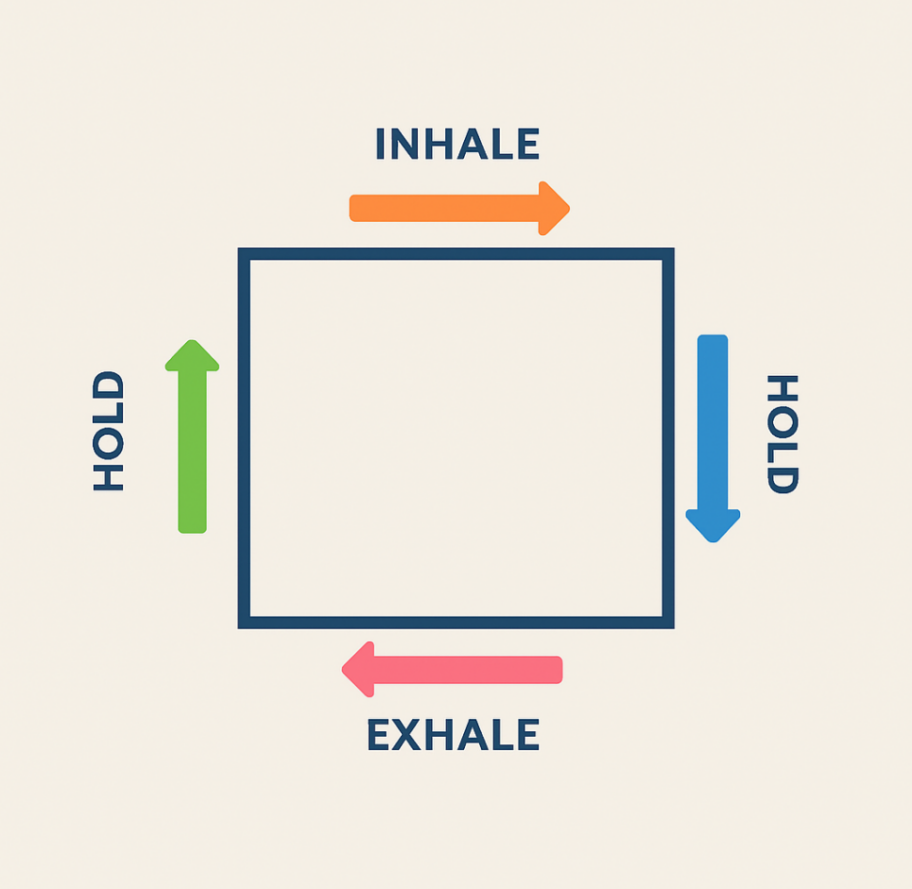
In this article, you’ll discover 12 ways to reduce stress naturally that support your mood, hormones, and overall well-being. Stress is a part of life, but it doesn’t have to take over. When tension builds, it can affect your mood, hormones, inflammation levels, and even gut health. The good news is that your body is designed to restore balance when you give it the right support.
These 12 practices are science-backed ways to nurture calm, clarity, and resilience. They’re designed to fit into your day realistically and nurturingly. Start with one or two, and over time, these small, intentional steps can have a meaningful impact on your well-being—body, mind, and spirit.
1. Practice Deep Breathing

Slow, intentional breaths act like a reset button for your nervous system. Techniques like box breathing (inhale 4, hold 4, exhale 4, hold 4) or alternate nostril breathing help shift your body from fight-or-flight to rest-and-digest. Even 5 minutes a day can lower stress and lift your mood.
Tip: Try the HeartMath coherence technique: inhale for 5 seconds, exhale for 5, focusing on your heart and smiling. It’s portable, simple, and calming [1].
2. Take a Walk in Nature for Calm and Balance

Stepping outside and moving your body is one of the simplest ways to reduce stress naturally. A short walk lowers cortisol, clears your mind, and boosts endorphins. Aim for 10–20 minutes, ideally surrounded by greenery or sunlight. Even a mindful stroll around your block can help your nervous system reset.
3. Meditate to Reduce Stress Naturally
Meditation isn’t about emptying your mind—it’s about creating space for peace. Just 5-10 minutes of focused breathing or guided meditation can help your brain handle stress more gracefully. Apps like Headspace or Insight Timer provide gentle guidance, perfect for beginners. Over time, you may notice less mental chatter, more patience, and greater clarity.
4. Pause for Small Moments of Joy
Mini-breaks—like brewing a favorite tea, stretching, or gazing out the window—signal to your body that it’s safe to relax. Even 1 to 2-minute pauses throughout the day can reduce cortisol and help you feel refreshed and centered.
5. Engage in a Creative Hobby

Creative expression such as journaling, doodling, or cooking activates dopamine, countering stress hormones and giving your mind a gentle reset. It’s also one of the 12 ways to reduce stress naturally, offering relaxation through joyful activities. Spend 15–20 minutes a few times a week on something just for you. It’s about joy, not perfection.
6. Read or Listen to a Book for Relaxation
Curling up with a story can quiet your mind and soothe your body. Studies show even six minutes of reading can reduce stress by up to 60%. Audiobooks during your commute or reading before bed can gently prepare your mind for rest and relaxation.
7. Cut Back on Caffeine to Support Stress Reduction
Caffeine can spike cortisol and mimic stress in sensitive individuals. Try swapping one cup of coffee for herbal tea or decaf. Your body will thank you with steadier energy, calmer nerves, and fewer jitters.
8. Choose Low-Intensity Movement

Gentle exercise like yoga, Pilates, or easy cycling reduces tension and promotes calm without overtaxing your body. A 20-minute yoga flow can ease stress and improve sleep quality. Focus on restorative, soothing movement and listen to your body.
9. Try Progressive Muscle Relaxation (PMR)
PMR is a simple, research-backed technique that involves tensing and then slowly releasing different muscle groups in your body. This practice lowers physical tension, improves body awareness, and reduces cortisol. Start with your toes, hold for 5 seconds, release, and work your way up to your head. Just 10 minutes can leave you feeling calmer, more grounded, and ready to handle stress.
10. Connect With Loved Ones

Physical closeness—like a hug, cuddle, or meaningful conversation—releases oxytocin and melts tension. If you’re solo, self-massage or a soothing routine can provide a similar grounding effect. Connection, both internal and external, is a powerful stress buffer.
11. Soak Up Sunlight

Natural light boosts serotonin, supports vitamin D, and improves mood. Just 10–30 minutes outdoors daily can uplift your spirits and stabilize energy. Morning sunlight is especially helpful for regulating sleep-wake cycles.
12. Limit Screen Time Mindfully
Screens and social media can overstimulate the brain and increase anxiety. Setting boundaries like “no screens after 8 PM” helps your mind unwind naturally. Replace screen time with reading, journaling, or connecting with loved ones to gently release tension.
Final Thoughts
Reducing stress doesn’t have to feel overwhelming. By practicing one or more of these 12 ways to reduce stress naturally, you can take small, intentional steps such as a few deep breaths in the morning or a short walk at lunch that build a foundation of calm and balance over time.
Disclaimer: This content is informational and not a substitute for personalized medical advice. If stress feels unmanageable, reach out to a healthcare professional.
+ show Comments
- Hide Comments
add a comment